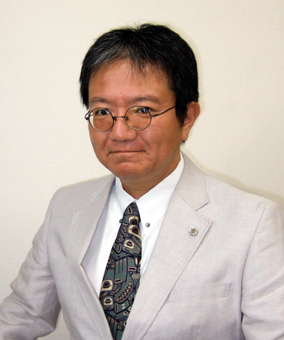| Annual Newsletter of the Slavic Research Center,
Hokkaido University |
||
| No.16
, January 2009 |
back to INDEX>> | |
| Our Current Staff |
Ongoing Cooperative Research
Projects |
Visitors from Abroad |
Guest Lectures from Abroad |
Publications (2007-08) |
The Library |
Website Access Statistics |
| Mikhail Shkarovskiy |
Sergey Vradiy |
Gulmira Sultangaliyeva |
 |
|
Iwashita Akihiro
|
Time sure does fly. Eight years have passed since I joined the Slavic Research Center (SRC). I never imagined that I would one day become the director.
Thanks in no small part to the endeavors of my predecessors and respected colleagues, the SRC has become one of the most prestigious organizations of its type in Japan. The SRC continues to serve as a springboard for advancing Slavic and Eurasian studies while making contributions to Japan’s area studies beyond our direct research field. The SRC also has the unique status of being a national collaborating institution for Slavic Studies, and was awarded the prestigious twentieth-century “Center of Excellence” (1995–2001) and the twenty-first-century “Center of Excellence” (2003–2008) by the Ministry of Education and Science. SRC staff members have received various prizes and awards from research associations, the Japan Society of the Promotion of Science, the mass media, and others. Publications and information appearing from the SRC are respected and appreciated, and have even, on occasion, influenced policy. All of us are proud of the SRC and give our deep thanks to the Japanese public, which always provides the SRC with generous support and understanding.
However, during my ten-month-long absence from the SRC, I gained valuable insight and experience as a visiting researcher of the Center for Northeast Asian Policy Studies at the Brookings Institution. Because of this experience, I now view the SRC in a new light. Though the SRC promoted its international networks, organizing many multinational conferences and seminars and publishing books and journals, its exposure and appreciation has yet to reach a global audience. Even domestic issues seem to present a challenge. The on-going reform of Japan’s research system urges us to reconsider administrative efficiency and to build closer relations with other related institutions and foundations. The time has come to rethink SRC management.
We are now working toward making “changes” within the institution to maximize our potential and productivity. Getting the SRC right beyond Japan is also a vital task. The SRC is committed to establishing an East Asian community in Slavic and Eurasian studies in collaboration with our Korean and Chinese colleagues. The SRC would also like to stretch its research field and regional interaction beyond the former Soviet and East European spaces toward South Asia and the Middle East. The SRC will strive to cooperate with our American and European counterparts in a more effective way.
I look forward to hearing your suggestions on how the SRC can best achieve its goals. The SRC could not survive and develop further without your broad and ardent support. I am eager for us all to work together!
IWASHITA Akihiro